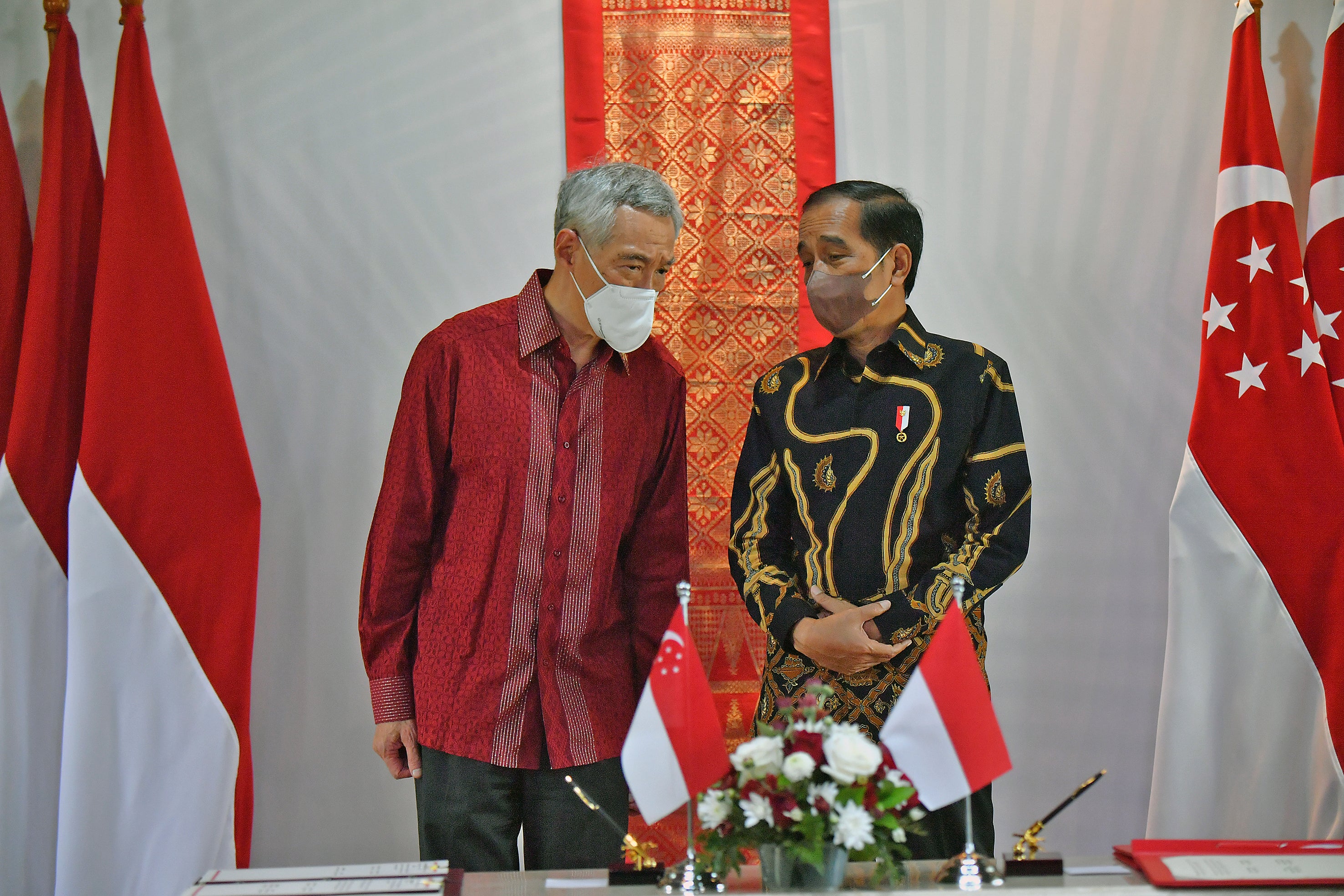Indonesia, Singapore sign key defense, extradition treaties
Indonesia and Singapore have signed key defense and diplomatic agreements that appear to mark a turning point in relations between the Southeast Asian neighbors

Your support helps us to tell the story
From reproductive rights to climate change to Big Tech, The Independent is on the ground when the story is developing. Whether it's investigating the financials of Elon Musk's pro-Trump PAC or producing our latest documentary, 'The A Word', which shines a light on the American women fighting for reproductive rights, we know how important it is to parse out the facts from the messaging.
At such a critical moment in US history, we need reporters on the ground. Your donation allows us to keep sending journalists to speak to both sides of the story.
The Independent is trusted by Americans across the entire political spectrum. And unlike many other quality news outlets, we choose not to lock Americans out of our reporting and analysis with paywalls. We believe quality journalism should be available to everyone, paid for by those who can afford it.
Your support makes all the difference.Indonesia and Singapore on Tuesday signed a series of key defense and diplomatic agreements that appeared to mark a turning point in relations between the Southeast Asian neighbors.
The agreement on defense cooperation — along with separate treaties on extradition and airspace rights — were signed in the presence of Indonesian President Joko Widodo of Indonesia and Singapore's Prime Minister Lee Hsien Loong.
“They have been on our bilateral agenda for several decades, we have worked together and discussed them many times before,” Lee said at a joint news conference with Widodo.
The signing ceremony on the Indonesian resort island of Bintan, next to Singapore, followed on lengthy and difficult negotiations.
A similar defense agreement was first signed by the two countries in April 2007, but didn’t to go into effect after opposition in Indonesia’s Parliament. With the new airspace and extradition agreements meeting many of Jakarta’s demands, it is widely expected that Indonesian lawmakers — the majority of whom belong to the government-led bloc — will pass the new treaties.
The extradition treaty will give Jakarta the ability to pursue high-profile Indonesian businessmen who are accused of embezzling billions of dollars after the 1997-1998 financial crisis and fled to the neighboring city-state, if the treaties are ratified by lawmakers in both countries.
“In the future, it is hoped that cooperation in law enforcement, aviation safety, and defense and security of the two countries can continue to be strengthened based on the principle of mutual benefit,” Widodo said.
The defense cooperation agreement will significantly boost Singapore's ability to carry out naval and military exercises amid regional tensions over China s rise. The island city-state lacks maritime, land and airspace to effectively train its military. Indonesia, which holds huge land and maritime areas, has agreed to let Singapore carry out naval exercises with other nations in the Bravo area of the South China Sea four times a year — terms which previously riled up Indonesian lawmakers.
In return, Singapore has agreed to limit its airspace rights and cede air traffic control in the Riau region and over some parts of Indonesia's Borneo — areas that the International Civil Aviation Organization assigned to Singapore's aviation authority in 1946 despite Indonesia's later opposition. Under the new Flight Information Region (FIR) scheme, Singapore’s air rights only reach to within 90 nautical miles of Indonesia’s airspace.
Singapore's Lee presented the agreements as key to bringing bilateral relations forward.
“When implemented, the FIR Agreement will meet the civil aviation needs of both countries,,” Lee said.
“The extradition treaty will enhance cooperation in combating crime and send a clear and positive signal to investors, while the defense agreement will strengthen cooperation between our armed forces," he added.